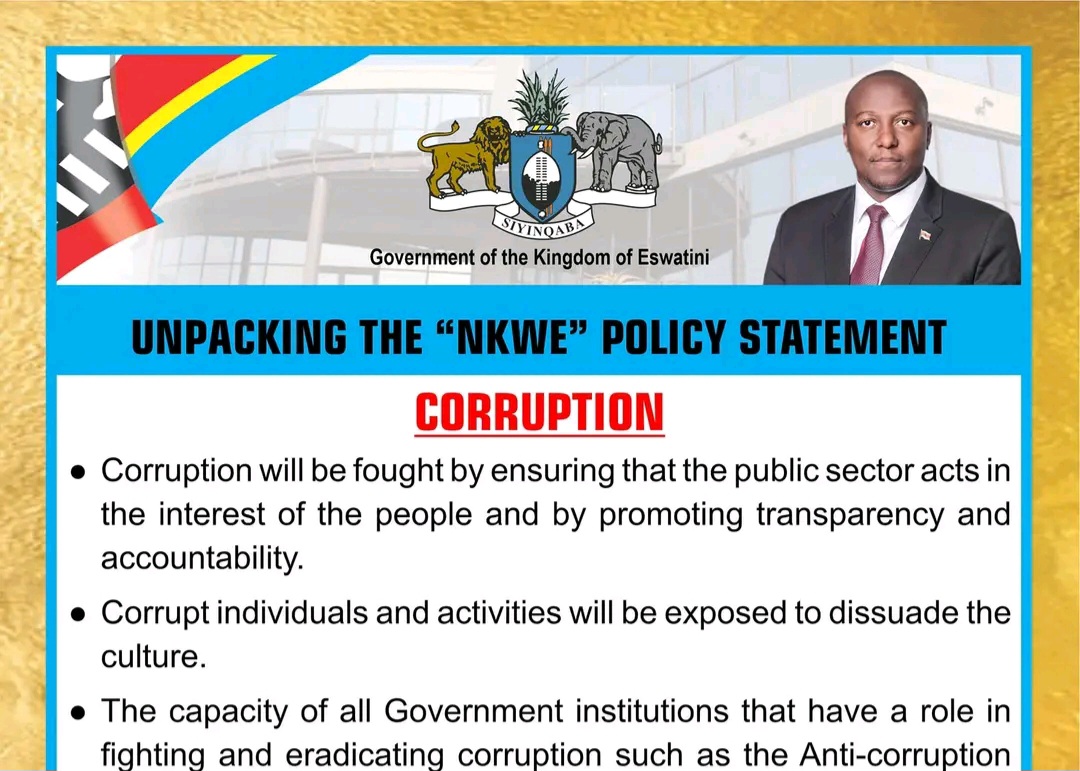BY MBONO MDLULI
MBABANE – Despite the fact that some individuals have already been called to book on corruption allegations, many individuals are still going to be exposed for such misconducts.
Government has made this commitment when unpacking the 2023 to 2028 “Nkwe” Policy Statement. “Corrupt individuals and activities will be exposed to dissuade the culture,” said part of the statement. According to the statement, corruption has become endemic in the country and an incipient culture among the elite and middleclass.
According to the statement, this pervasive cancer should be eradicated from the country. Corruption would be fought by ensuring that the public sector acted in the interest of the people and by promoting transparency and accountability.
The capacity of all Government institutions that have a role in fighting and eradicating corruption such as the Anti-corruption Commission, Human Rights Commission, Public Prosecution, and the Royal Eswatini Police Service will be significantly strengthened.
Government will promote the rule of law and strengthen the capacity of the Police Service to enforce the Laws of our land. The population will be mobilised to understand the impact of corruption and to be part of the fight against corruption.
The administration is inspired to fight corruption by a command directed to it by His Majesty King Mswati III. The king emphasised the importance of eradicating acts of dishonesty within both the private and public sectors, stating that corruption hindered the efforts made by the country to progress in economic terms.
The king said this during the opening of the First Session of the 12th Parliament on February this year. “Corruption stands in the way of progress in our Nation’s plans, programmes and projects for development. We strongly encourage Government to prioritise taking action on this matter,” the king was quoted as saying.
In the same month, Prime Minister Russell Mmiso Dlamini launched an Anti-Corruption Task Team, which consisted of members of various organisations within the criminal justice system. The task team was mandated to work the Anti-Corruption Commission and the Royal Eswatini Police Service (REPS), Directorate of Public Prosecutions (DPP), among other organisation in detecting and prosecuting corruption-related cases.







